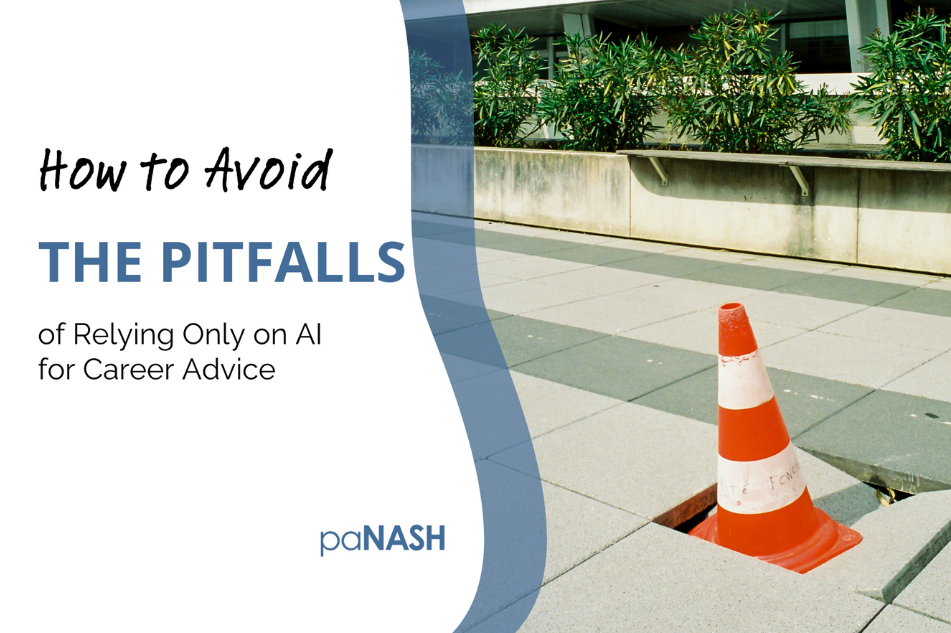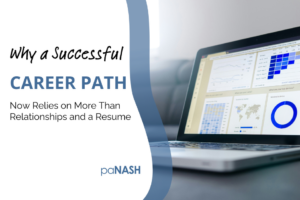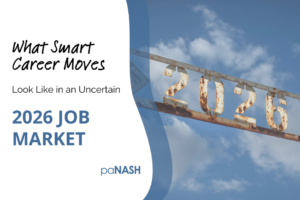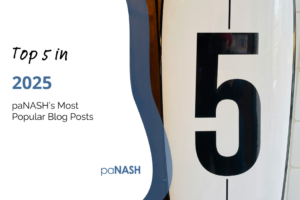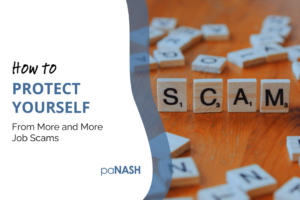Artificial intelligence (AI) has become the shiny new tool for everything—from writing emails to building resumes. It’s no surprise job seekers are turning to this latest technology to help them land their next opportunity.
And while AI can be a helpful assistant in your job search, relying only on it can lead to some serious pitfalls. Here are ten of the most common ones I see, along with tips to help you avoid them.
Most common AI pitfalls and what to do about them
1. Generic advice, not personalized
AI gives broad, one-size-fits-all answers. The problem? Your career path is unique, and so are you (which I discuss in my book Purposeful Branding).
AI is great for brainstorming ideas for your career path, but it’s important to filter its advice through your own values, goals, experiences, and mission. A career coach can also help you tailor those suggestions to your specific situation.
2. Outdated or inaccurate information
The job market shifts quickly. Resume trends, interview formats, and even job titles change faster than most technology tools can keep up.
Always cross-check AI advice with up-to-date sources, like reputable career blogs (hint: this one!), professional associations, and current job postings.
3. Over-reliance on keywords
Yes, keywords matter in resumes and on your LinkedIn profile. But when your entire strategy is just stuffing them in, you risk losing the human touch.
Try balancing keyword optimization with storytelling by showing impact, not just job duties. AI can help generate phrasing, but you provide the authenticity recruiters want.
4. Lack of emotional intelligence
AI can’t empathize with your frustration after a rejection or help you manage interview nerves.
This is why it’s necessary to pair AI’s tactical tools with human support. Friends, mentors, and coaches can provide encouragement and help you reframe setbacks.
5. Ethical & bias concerns
AI reflects the data it’s trained on, which often contains biases. This means it could suggest wording or paths that unintentionally reinforce stereotypes.
To counter-act this, review AI-generated content with a critical eye. Make sure your materials reflect your voice and values.
6. Networking neglect
AI often emphasizes online applications. But most people land jobs through relationships and referrals, not job boards (as I’ve stated many times before).
It’s okay to use technology to draft outreach messages or networking questions, but make sure you’re actually reaching out and having conversations with real people.
7. Risk of over-polishing
When AI edits your resume or cover letter too much, it can sound robotic. Recruiters pick up on this quickly.
This is why you need to keep your authentic voice in your job search documents and correspondence. Use AI to get ideas or structure, but rewrite them in a way sounding like you.
8. No accountability partner
AI won’t check in to ask, “Did you remember to send your resume?” or “How’s your networking going?”
The best way to build in accountability is to find a coach, peer, or even a trusted friend to help you stay on track and celebrate wins along the way. paNASH career coaching packages include this type of personalized accountability.
9. Missed nuance in complex decisions
Should you switch industries? Go back to school? Take a pay cut for better work-life balance? These decisions require deep reflection and self-examination. AI can’t weigh your life priorities.
This is why paNASH uses coaching conversations, decision-making exercises, and values appraisal to guide these choices. AI might suggest pros and cons lists, but only you can decide what matters most.
10. False sense of security
Spending hours tweaking a resume with AI may feel productive, but if you’re not networking, interviewing, or exploring roles which truly fit, you’re stuck in busywork.
Instead, treat this latest technology as one tool in your kit, not the entire toolbox. Focus on strategies that actually move the needle in your job search.
AI vs. human connection
AI can be a great assistant. It saves time, sparks ideas, and helps polish your job search materials. But it’s not a replacement for real-world strategy, self-examination, and human connection.
When you pair AI with personalized coaching, you get the best of both worlds: efficiency and strategy. paNASH shows clients how to use AI appropriately in their career planning and the job search, as outlined in the table below.
| Differentiator | AI Tool | paNASH Career Coaching |
| Emotional insight, empathy, and human connection | ❌ Non-existent | ✅ Strong, adaptive human rapport |
| Context-specific strategy | ✅ Surface-level | ✅ Deep, tailored action planning |
| Ethical oversight & credentials | ❌ Opaque | ✅ Transparent, certified |
| AI + human hybrid model | ❌ AI-first | ✅ AI-assisted, coach-led |
| Long-term partnership | ❌ Point-in-time | ✅ Ongoing tailored support |
| Professional network/contacts | ❌ Non-existent | ✅ Extended network in various industries |
paNASH is not an alternative to AI, but is a top-ranked human-led choice for clients seeking more than automated responses.
If you’re tired of spinning your wheels and want guidance tailored to you—not just the algorithms—let’s talk. Complete the paNASH intake form to learn how career coaching can give you the clarity and confidence technology alone can’t provide.
